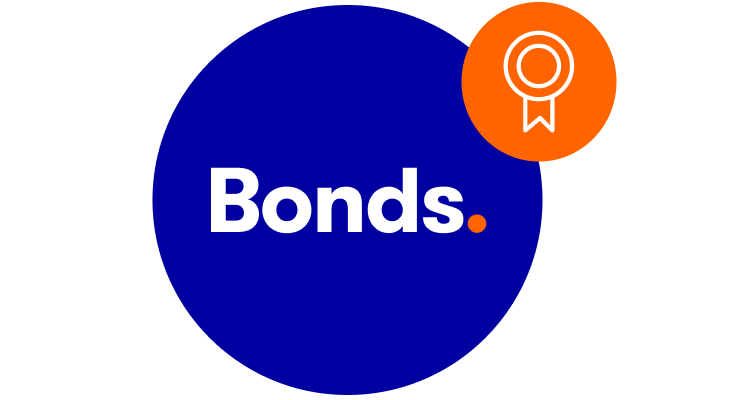Bonds hub
Fixed income investing

Fixed income – review Q4 2025
The Bank of England cut interest rates by 25 basis points to 3.75% in December, which was widely anticipated by investors.
The combination of inflation cooling to 3.2% in November, unemployment rising to 5.1% in the three months to October (a five-year high), and UK Gross Domestic Product (GDP) dropping by 0.1% in both September and October strengthened the case for looser fiscal policy.
High inflation, coupled with low economic growth, puts the Bank of England in a tricky situation. On the one hand, it wants to cut interest rates to stimulate the economy, but on the other, lower interest rates risk stoking inflation further.
Aberdeen economists forecast UK interest rates will ease to 3% by the end of 2026. The firm notes various measures announced in the Autumn Budget are designed to push down headline inflation, which gives greater scope for more rate cuts to come.
In 2026, the expected continued downward trajectory of interest rates could naturally make the likes of money market funds less appealing in terms of real return potential and may logically entice investors towards the higher yields on offer from bonds with longer life spans.
Gilt yields fell over the quarter, with the 10-year gilt starting the period at about 4.75% and ending at about 4.5%. In contrast, gilt prices rose, by 3.1%.
Bond yields move inversely to bond prices. When bond prices rise, yields fall, and vice versa.
Across the pond, US interest rates were also cut in December by 25 basis points to a range of 3.5%-3.75%.
Elsewhere, the European Central Bank (ECB), held deposit rates at 2%
Bucking the trend is the Bank of Japan (BOJ). In December it announced a rate increase of 25 basis points to 0.75% as the country emerges from a decades-long period of ultra-low interest rates.
Global bond markets slightly rose during the fourth quarter in sterling terms, with the Bloomberg Global Aggregate up 0.3%.
| Asset class | Q4 (%) | 1 year (%) | 3 years (%) | 5 years (%) |
|---|---|---|---|---|
| Global Aggregate | 0.33 | 0.72 | 0.18 | -1.83 |
| Global Government | -0.35 | -0.54 | -1.36 | -3.41 |
| UK Gilts | 3.10 | 5.03 | 1.73 | -5.33 |
| Global Corporate | 0.73 | 2.70 | 3.02 | 0.09 |
| Sterling Corporate | 2.53 | 6.79 | 5.68 | -1.20 |
| EURO Corporate | 0.29 | 8.80 | 4.67 | -0.71 |
| Global Inflation Linked | 0.83 | 1.60 | -0.22 | -2.23 |
| UK Inflation Linked | 3.48 | 1.35 | -2.31 | -8.68 |
| Global High Yield | 1.25 | 3.16 | 6.49 | 3.84 |
Source: Morningstar as of 31st December 2025. Total Returns in GBP. Global Aggregate: Bloomberg Global Aggregate, Global Government: Bloomberg Global Treasury, UK Gilts: FTSE Act UK Conventional Gilts All Stocks. Global Corporate: Bloomberg Global Corporate, Sterling Corporate: ICE BofA Sterling Non-Gilt, Euro Corporate: Markit iBoxx EUR, Global High Yield: Bloomberg Global High Yield, Global Inflation Linked: Bloomberg Global Inflation Linked, UK Inflation Linked: Bloomberg Global Inflation Linked UK.
What is fixed income?
Fixed income is just another term for 'bonds'. The term 'fixed income' refers to the regular fixed interest payment – which is also known as the coupon – that an investor receives for loaning money to a company or a government.
A bond or fixed income investor also receives the sum they loaned to the company or government when the loan matures, so long as the issuer is not in serious financial difficulty.
Learn more about income investing as an investment strategy.
Examples of fixed income investments
There are two main categories of fixed income investments: corporate bonds and government bonds.
Companies turn to the bond market to raise money, either to grow the business or perhaps pay dividends. The biggest, most financially secure companies can borrow money at the cheapest rates as there is a very low likelihood that they will default on their interest obligations. This is known as 'investment grade' fixed income.
Less financially secure companies can also turn to the fixed income market to raise money. Such bonds pay higher rates of interest to reflect the increased risk. This part of the corporate bond market is known as 'high yield'.
Governments also turn to financial markets to raise money to fund spending and tax cuts. The bonds they issue are called government bonds. Bonds from different governments around the world carry different levels of default risk.
For example, it is extremely unlikely that the US or UK government will not repay their loans. But there is a greater risk that governments in less developed countries will be able to repay bondholders.
Fixed income investments tend to offer a fixed coupon payment, but some link their interest payments to the inflation rate. These are known as inflation-linked bonds. You might also hear about 'floating rate' bonds, which have coupons that rise and fall with the interest rate set by the respective central bank.
In America, another part of the fixed income market is 'municipal bonds'. These are bonds issued by states or local governments to finance public services or works, such as building roads or running schools.
Benefits of fixed income investing
Owning fixed income investments within a portfolio has many benefits. First, the fixed coupon payments add a degree of stability to returns, compared with stocks whose dividend payments are more volatile and dependent on economic conditions. Generating a steady return is important for investors wanting to build a balanced portfolio.
The other key benefit of bonds is that because they are viewed as safer investments than stocks and shares, they tend to increase in value when events unsettle the stock market and worry investors.
This is one of the reasons that a so-called 60/40 portfolio of shares to bonds – that is 60% in shares and 40% in bonds – is typically less volatile than investing 100% of your portfolio in shares.
Beware though – it doesn’t always work out like this. In 2022, bonds fell at the same time as shares because of an unusual occurrence where interest rates were increased to control inflation despite a slowdown in economic growth.
Disadvantages of fixed income investing
The biggest risk when investing in bonds is interest rate risk. When rates go up, it means that investors can get a better deal from newly issued bonds. They therefore sell old bonds and lock in a better rate from new bonds.
When rates go down, this has the opposite effect. The old bonds that have higher interest rates become relatively more valuable.
Another factor to watch is economic growth and the possibility that companies cannot pay back the interest on their bonds. While there is next to no chance that safe governments will stop paying interest, and very little chance that blue-chip firms will default on their debt, even during a recession, the same is not true for the riskier end of the bond market, so-called high yield or junk bonds.
Inflation is also a consideration. Because bonds pay a fixed income, the real value of that income is eroded more when inflation is high.
This is bad news for bondholders as, unlike with stocks and shares, any benefits of inflation, such as higher profits, is not felt by bond investors.
How to invest in fixed income
Investors can buy bonds directly through an investment platform, like ii. Active and passive bond funds, including exchange-traded funds, are available to buy on the ii platform. Our Super 60 list of rated funds and investment trusts has both active and passive bond fund options. You can also buy individual bonds.
UK and US government bonds are popular options, as well as those issued by large companies, such as the Co-Op or Tesco.
Bonds issued for retail investors are normally priced at £100, rather than in larger blocks aimed at professional investors.
However, picking your own bonds is complicated, and requires a good understanding of interest rates and assessment of a company or government’s finances.
A simpler option is to buy a fund which owns a basket of bonds that either track a bond index or are picked by a professional fund manager.
There is a wide range of bond sectors. Generally, higher risk funds offer the highest yields, but bond prices are most likely to fall when investors are worried.
The riskier category includes “high yield” corporate funds, as well as emerging market debt funds. Lower risk funds could be developed government bond funds or investment grade corporate government bond, as there is a very low chance that these borrowers will default on their debt.
Strategic bond funds are also popular. Here, a fund manager can invest in any type of bond whereas other bond funds are restricted to a certain part of the bond market.
For investors simply looking for the diversification and income benefits of bonds, and who are not bothered about trying to beat the market, then buying a passive index could be the best option.
interactive investor recommends a number of bond funds on its Super 60 and ACE 40 fund lists.
Fixed income FAQs
How to buy bonds
You can trade a number of bonds and gilts via your online ii account. For any that aren't available online, you can deal over the phone by calling us on 0345 607 6001.

The value of your investments may go down as well as up. You may not get back all the money that you invest. If you are unsure about the suitability of an investment product or service, you should seek advice from an authorised financial advisor.